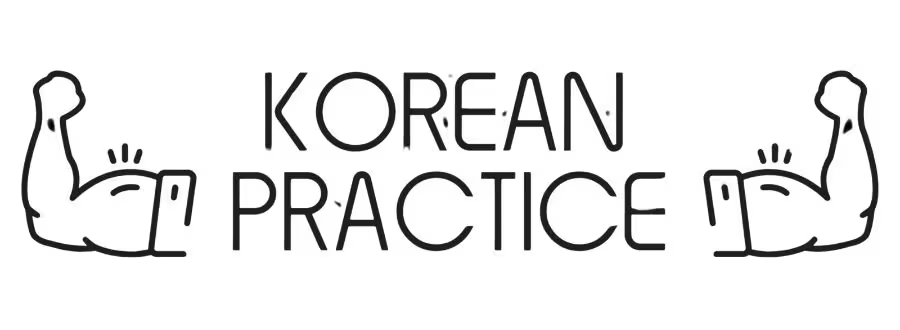Table of Contents
If you’re learning Korean, you’ve probably seen the phrase “꿈을 꾸다.” It’s often translated as to dream in Korean, but this phrase carries more than just the image of what happens when you sleep. Understanding the 꿈을 꾸다 meaning can help you express both your imagination and your life goals — and that’s what makes it so powerful.
This Korean verb is used in two main ways, and knowing both will help you sound more natural when talking about daily life or your long-term aspirations.
In this blog post, we’ll break down the two meanings of 꿈을 꾸다, and show you how it works with simple examples, grammar explanations, and pronunciation tips. Whether you’re curious about 꾸다 meaning on its own or how it works in different tenses, we’ve got you covered.
🌙 What Does 꿈을 꾸다 Mean?
Literal Meaning – “To dream” while sleeping
- This is the most straightforward usage. When you say “꿈을 꾸었어요”, it usually means you had a dream while sleeping.
- 예: 어젯밤에 이상한 꿈을 꿨어요.
“I had a strange dream last night.” - Here, 꿈을 꾸다 follows typical patterns seen in many Korean verbs, and it conjugates like a regular action verb. If you’re working on Korean verb conjugation, this one is a great example to start with.
Figurative Meaning – “To dream” or have hopes/ambitions
- Like in English, 꿈을 꾸다 can also mean to have hopes or aspirations — dreaming of becoming a singer, starting a business, or traveling the world.
- 예: 어릴 때부터 가수가 되는 꿈을 꿨어요.
“I dreamed of becoming a singer since I was young.” - This use of 꿈을 꾸다 reflects something deeply personal. It’s not just about sleep — it’s about purpose.

꿈을 꾸다 Example 1
Original Korean Sentence
민수는 어젯밤에 용이 나오는 꿈을 꿨어요.
Pronunciation Guide
민수는 (min-su-neun) 어젯빠메 (eo-jet-ppa-me) 용이 (yong-i) 나오는 (na-o-neun) 꾸믈 (kkum-eul) 꿧써요 (kkwot-sseo-yo)
Meaning and Context
민수 (given name) 는 (he is my topic) 어젯밤 (last night) 에 (at/in/to) 용 (dragon) 이 (subject marker) 나오 (to appear) 는 (modifying the noun “dream”) 꿈 (dream) 을 (object marker) 꾸 (to dream) 었 (past tense) 어요 (I’m saying this polite and friendly).
Pronunciation Patterns for Conjugations
⊳ 꾸 + 었 = 꿨. Rapidly pronouncing ‘꾸’ and ‘었’ results in ‘꿨’.
Grammar
* 는: Attaches to verbs to describe nouns, like “a dream that (something happens in)”.
Culture
용 (dragon): In Korean culture, dragons symbolize strength and good luck. Dreaming of a dragon is often considered a good omen.
English Translation
Minsu had a dream last night where a dragon appeared.
Literal Translation
Minsu dreamed dream (that) dragon appear at last night.

Want to learn Korean in a simple and structured way, just like this? My courses break down grammar step by step, making Korean easy to understand. Plus, you can try free sample lessons. Ready to start?
꿈을 꾸다 Example 2
Original Korean Sentence
나는 어릴 때 자주 하늘을 나는 꿈을 꿨어.
Pronunciation Guide
나는 (na-neun) 어릴때 (eo-ril-ttae) 자주 (ja-ju) 하느를 (ha-neu-reul) 나는 (na-neun) 꾸믈 (kku-meul) 꿧써 (kkwot-sseo)
Meaning and Context
나 (I) 는 (I’m going to talk about myself) 어리 (to be young) ㄹ 때 (when) 자주 (often) 하늘 (sky) 을 (my object is sky) 날 (to fly) 는 (modifying “dream”) 꿈 (dream) 을 (object marker) 꾸 (to dream) 었 (past tense) 어 (I’m telling you casually).
Pronunciation Patterns for Conjugations
⊳ 어리 + ㄹ 때 = 어릴 때. When rapidly pronounced, ‘리’ and ‘ㄹ’ naturally combine to form ‘릴’.
⊳ 꾸 + 었 = 꿨
When rapidly pronounced, ‘꾸’ and ‘었’ naturally combine to form ‘꿨’.
⊳ 날 + 는 = 나는 (spoken softly)
Grammar
* 는 꿈: “dream that (subject verb)”
English Translation
I used to dream of flying in the sky when I was little.
Literal Translation
I dreamed dream often (that I) fly sky when little.
꿈을 꾸다 Example 3
Original Korean Sentence
그 배우는 세계적인 스타가 되는 꿈을 꾸고 있어요.
Pronunciation Guide
그 (geu) 배우는 (bae-u-neun) 세계저긴 (se-gye-jeo-gin) 스타가 (seu-ta-ga) 되는 (dwe-neun) 꾸믈 (kku-meul) 꾸고 (kku-go) 잇써요 (it-sseo-yo)
Meaning and Context
그 (that) 배우 (actor) 는 (my topic is that actor) 세계적인 (world-class) 스타 (star) 가 (subject marker) 되 (to become) 는 (modifying “dream”) 꿈 (dream) 을 (object marker) 꾸 (to dream) 고 있 (~ing) 어요 (I’m telling you polite and friendly).
Grammar
* 는 꿈: dream that (something will happen)
English Translation
That actor is dreaming of becoming a world-class star.
Literal Translation
That actor is dreaming dream that (he) become world-class star.
Conclusion: Mastering 꿈을 꾸다 meaning
The phrase “꿈을 꾸다” may look simple, but its range of meanings makes it one of the more emotionally rich Korean verbs. That’s why it appears so often in everyday speech, writing, and even K-pop lyrics.
If you want to speak naturally and express yourself deeply in Korean, make sure you know how to conjugate 꿈을 꾸다 correctly in various tenses and contexts.
If you’re learning Korean, don’t just memorize grammar rules — practice through stories, dreams, and real-life examples. Want to explore more expressions like this one? I break down every sentence clearly in my story-based Korean courses. 🎓
Sign up for my newsletter and get
📖 Korean short stories
🎧 Listening practice with audio
❓ Vocabulary and grammar quizzes
🎁 Free courses
📝 Blog updates
– all delivered straight to your inbox!










